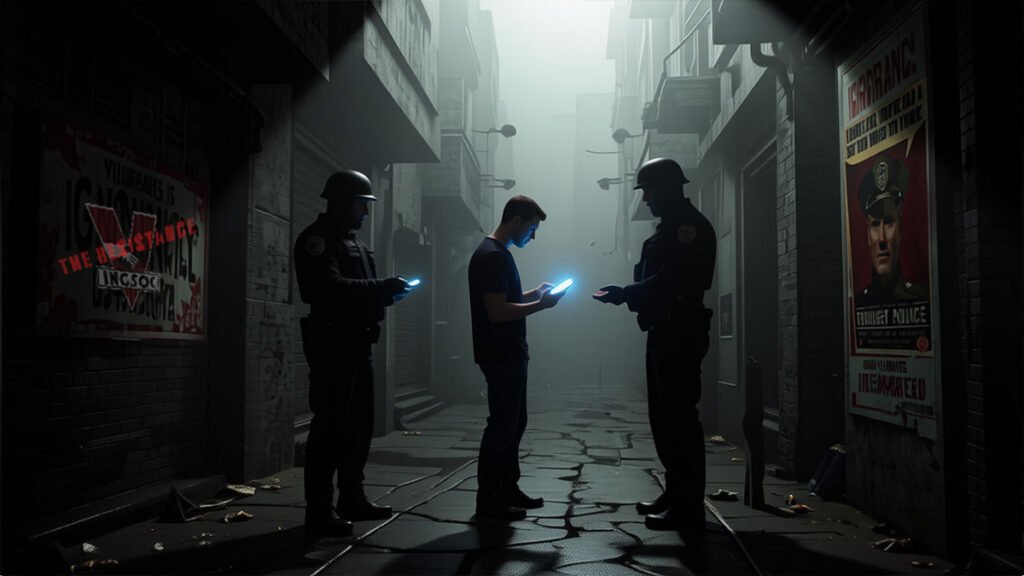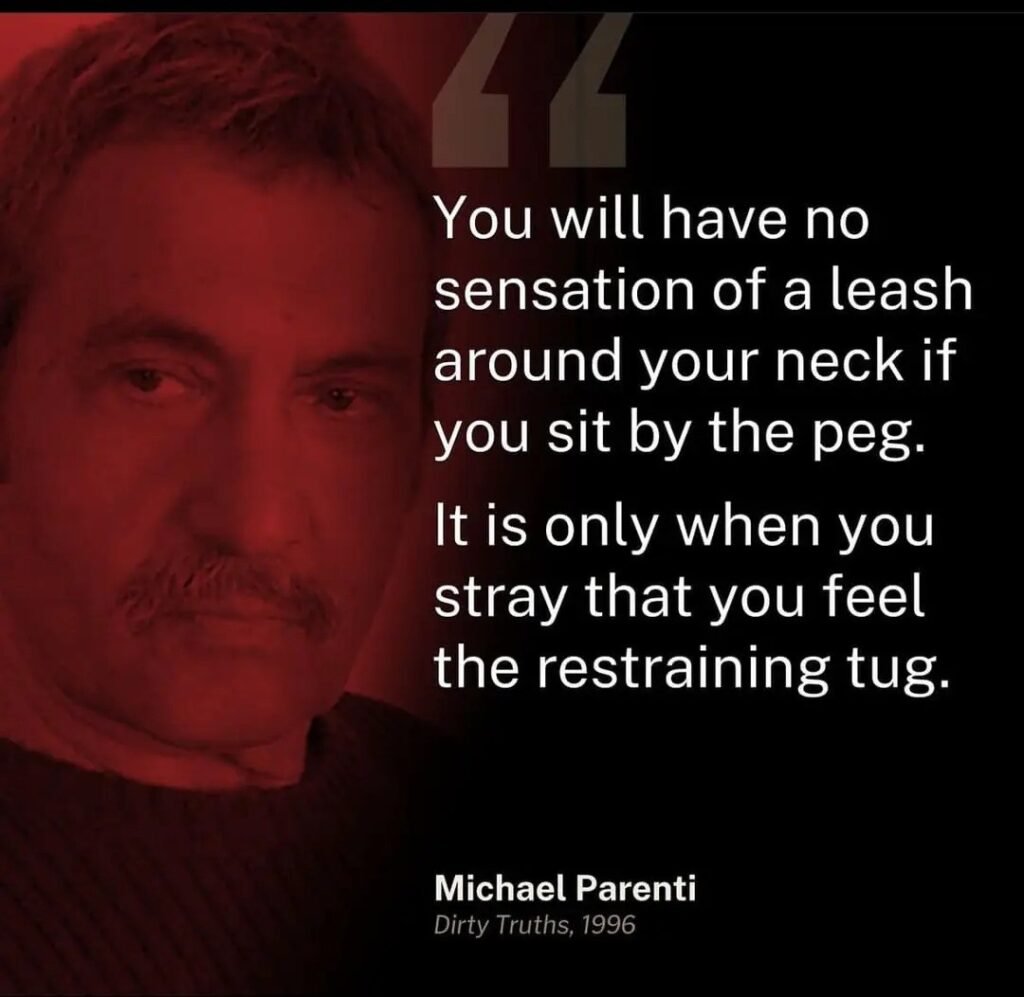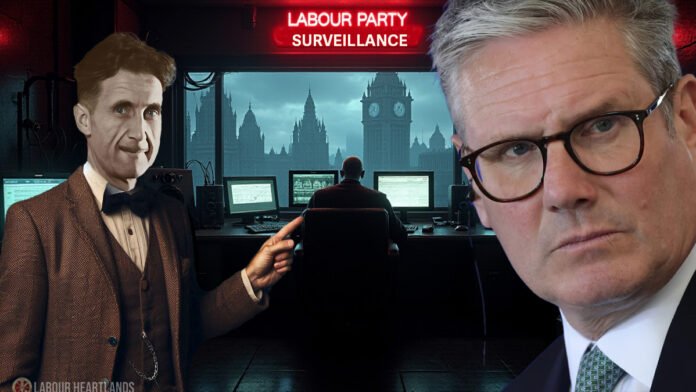“The telescreen received and transmitted simultaneously. Any sound that Winston made, above the level of a very low whisper, would be picked up by it.” Orwell’s vision of omnipresent surveillance was meant as warning, not instruction manual. Yet here we are, watching Keir Starmer propose the very infrastructure Big Brother would have envied, a digital identity system that tracks every citizen’s movements through the necessities of daily life. The only improvement on Orwell’s design: shrunk to pocket size and marketed as a smartphone.
The Brit-Card and Britain’s Surveillance Future
Create the crisis, present the solution and each time, we lose another slice of our liberty. Today, the Prime Minister unveiled his latest “innovation” at conference, ostensibly addressing voter concerns about illegal immigration. It’s the same tired playbook: manufacture fear, then offer salvation through surveillance.
The proposed “Brit Card”, a digital identity system stored on smartphones through a rebranded gov.uk Wallet app, would require every citizen to prove their identity at every turn. Employers, landlords, banks, and government services would verify your right to exist in your own country through a “free verifier app.” The language is seductive: streamlined, efficient, patriotic. The reality is chilling.
Your Phone, Your Prison: The Chilling Reality of the “gov.uk Wallet”

Home Secretary Shabana Mahmood champions the scheme, declaring her “long-term personal political view has always been in favour of ID cards.” How convenient that someone who has spent years advocating for state surveillance now holds the brief to implement it. Starmer himself argues that digital IDs could “play an important part” in making Britain less attractive to illegal migrants, citing French claims that our lack of official cards acts as a “pull factor.”
The intellectual architecture comes courtesy of Labour Together, whose director of technology, Kirsty Innes, now a special adviser to Technology Secretary Liz Kendall, authored the foundational paper. Her justification reveals the mission creep already embedded in the proposal: “A progressive society can only work if we have meaningful borders. Brit Card would make it far harder to flout the illegal work and illegal rent rules.”

Notice the sleight of hand. What begins as immigration control becomes workplace monitoring becomes housing surveillance. The Tony Blair Institute, predictably, hails this as “one of the most important steps taken by this or any government to make British citizens’ everyday lives easier.” Easier for whom, exactly? For citizens navigating daily life, or for governments tracking their every movement?
The opposition voices raise prescient concerns. David Davis, who led the charge against Blair’s original ID card scheme, warns that “no system is immune to failure” and questions whether Whitehall can protect personal data better than “world-leading companies” that routinely suffer breaches. The Liberal Democrats correctly identify this as forcing people to “turn over their private data just to go about their daily lives.”
Jim Killock of the Open Rights Group cuts to the heart of the matter: this risks creating “a digital surveillance infrastructure that will change everyone’s daily lives and establish a pre-crime state where we constantly have to prove who we are.” The existing digital visa schemes already demonstrate the dangers, people unable to travel, losing job offers, made homeless by system errors and bureaucratic indifference.
David Rennie, a former Home Office identity cards programme official, calls the migration justification “absurd,” noting that employers already face £45,000 fines for hiring illegal workers. If existing enforcement mechanisms are inadequate, the problem lies not in identification but in implementation. Adding another layer of digital bureaucracy won’t solve enforcement failures, it will simply expand the surveillance apparatus while illegal employment continues.
Context matters crucially here. This proposal doesn’t emerge from a liberal democracy concerned with administrative efficiency. It comes from the most authoritarian government Britain has witnessed in modern times, one that has already normalised monitoring bank accounts, criminalising peaceful protest, and arresting people for journalism and social media posts.
The pattern is unmistakable. Each crisis generates new powers that somehow never sunset when the emergency passes. Anti-terrorism legislation becomes routine policing. Public health measures become social control. Immigration concerns become universal surveillance. The ratchet only turns one way, toward greater state power and diminished individual autonomy.
This is not about illegal migrants, whatever the rhetorical packaging suggests. It’s about enrolling every citizen into a system where identity must be proven at every turn, where access to work, housing, banking, or healthcare can be switched off by the state with a keystroke. The infrastructure of oppression, once built, rarely remains limited to its original target.
Starmer’s “patriotic renewal” sounds increasingly Orwellian, a phrase that could have emerged directly from the Ministry of Truth. The politics of renewal become the politics of surveillance, dressed in the Union Jack and sold as technological progress. The very language corrupts meaning: freedom becomes security, privacy becomes secrecy, resistance becomes extremism.

The Brit Card represents more than administrative innovation; it embodies the foundational architecture of the surveillance state. Once every transaction requires digital verification, once every human interaction generates trackable data points, once the state can monitor every citizen’s movement through the basic necessities of existence, the transformation from democracy to techno-authoritarianism becomes irreversible.
This is Starmer’s Britain: a country where “patriotic renewal” serves as euphemism for mass surveillance, where Big Brother evolves from Orwell’s warning into a government conference announcement. The choice before us is stark, accept this digital leash in exchange for promises of security and efficiency, or recognise that some prices are too high for any society claiming to value freedom.
The infrastructure of oppression, once constructed, proves remarkably difficult to dismantle. We would do well to remember that before we hand over the keys to our own digital prison.
Support Independent Journalism Today
Our unwavering dedication is to provide you with unbiased news, diverse perspectives, and insightful opinions. We're on a mission to ensure that those in positions of power are held accountable for their actions, but we can't do it alone. Labour Heartlands is primarily funded by me, Paul Knaggs, and by the generous contributions of readers like you. Your donations keep us going and help us uphold the principles of independent journalism. Join us in our quest for truth, transparency, and accountability – donate today and be a part of our mission!
Like everyone else, we're facing challenges, and we need your help to stay online and continue providing crucial journalism. Every contribution, no matter how small, goes a long way in helping us thrive. By becoming one of our donors, you become a vital part of our mission to uncover the truth and uphold the values of democracy.
While we maintain our independence from political affiliations, we stand united against corruption, injustice, and the erosion of free speech, truth, and democracy. We believe in the power of accurate information in a democracy, and we consider facts non-negotiable.
Your support, no matter the amount, can make a significant impact. Together, we can make a difference and continue our journey toward a more informed and just society.
Thank you for supporting Labour Heartlands












